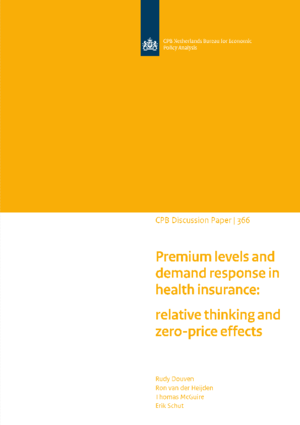Premium levels and demand response in health insurance: relative thinking and zero-price effects
Consumers might be sensitive to differences relative to a reference premium (“relative thinking”). Furthermore, consumers might be particularly sensitive to a reference premium of zero (“zero-price effect”), a relevant range for some subsidized health insurance markets. This paper tests these ideas with two sources of evidence. We argue that observed equilibria in Germany and the U.S. Medicare Advantage markets are consistent with a powerful zero-price effects, resulting in an equilibrium focal pricing at zero. This contrasts with the Netherlands where equilibrium premiums are well above zero. In an empirical test
using hypothetical questions in a web-based survey in these three countries, we also find evidence for both a relative thinking and a zero-price effect in the demand for health insurance. Our findings imply that well-designed subsidies can leverage relative thinking to increase demand elasticity for health plans. Creation of a powerful reference price (e.g., at zero), however, risks subverting price competition.

